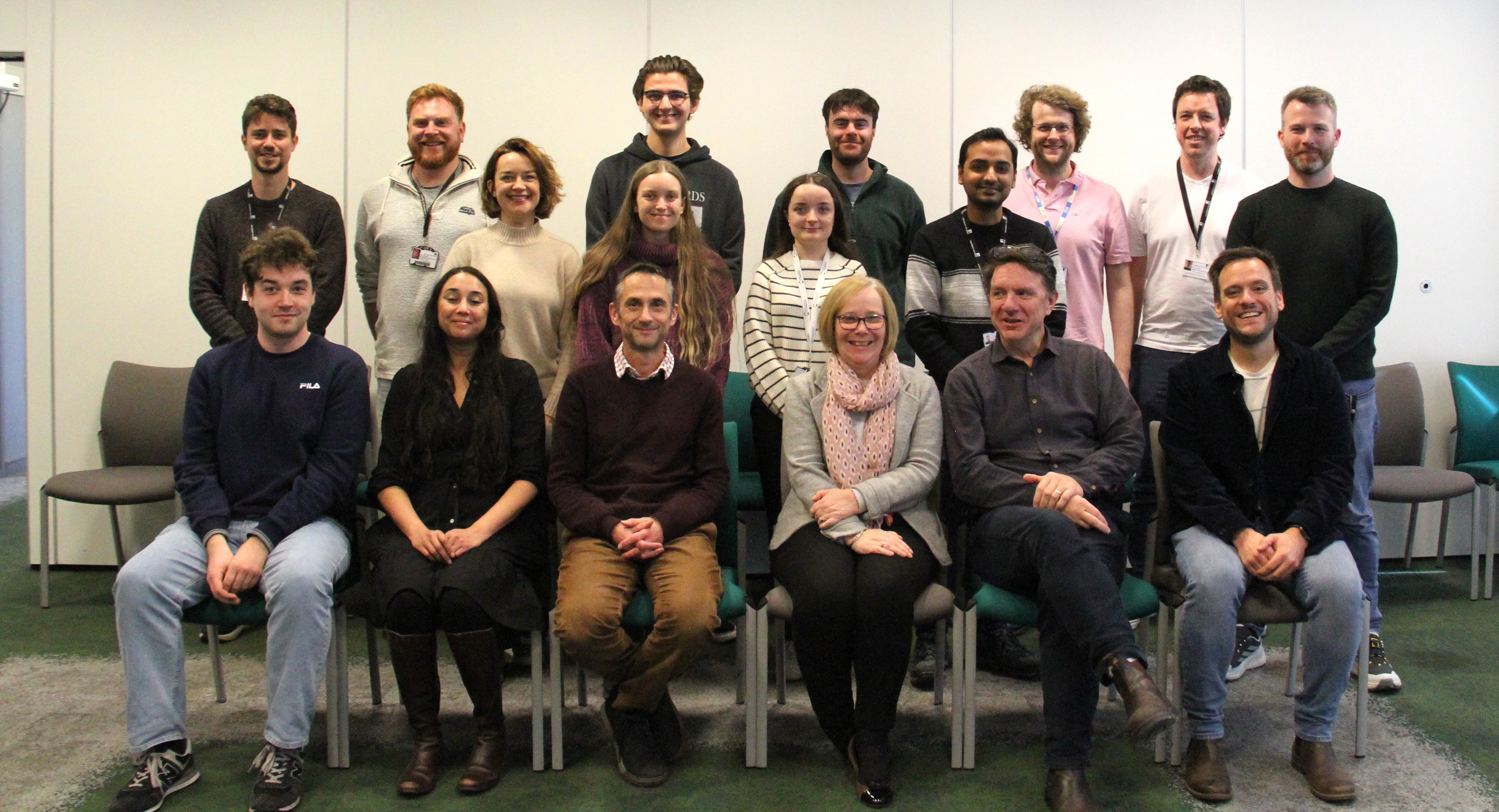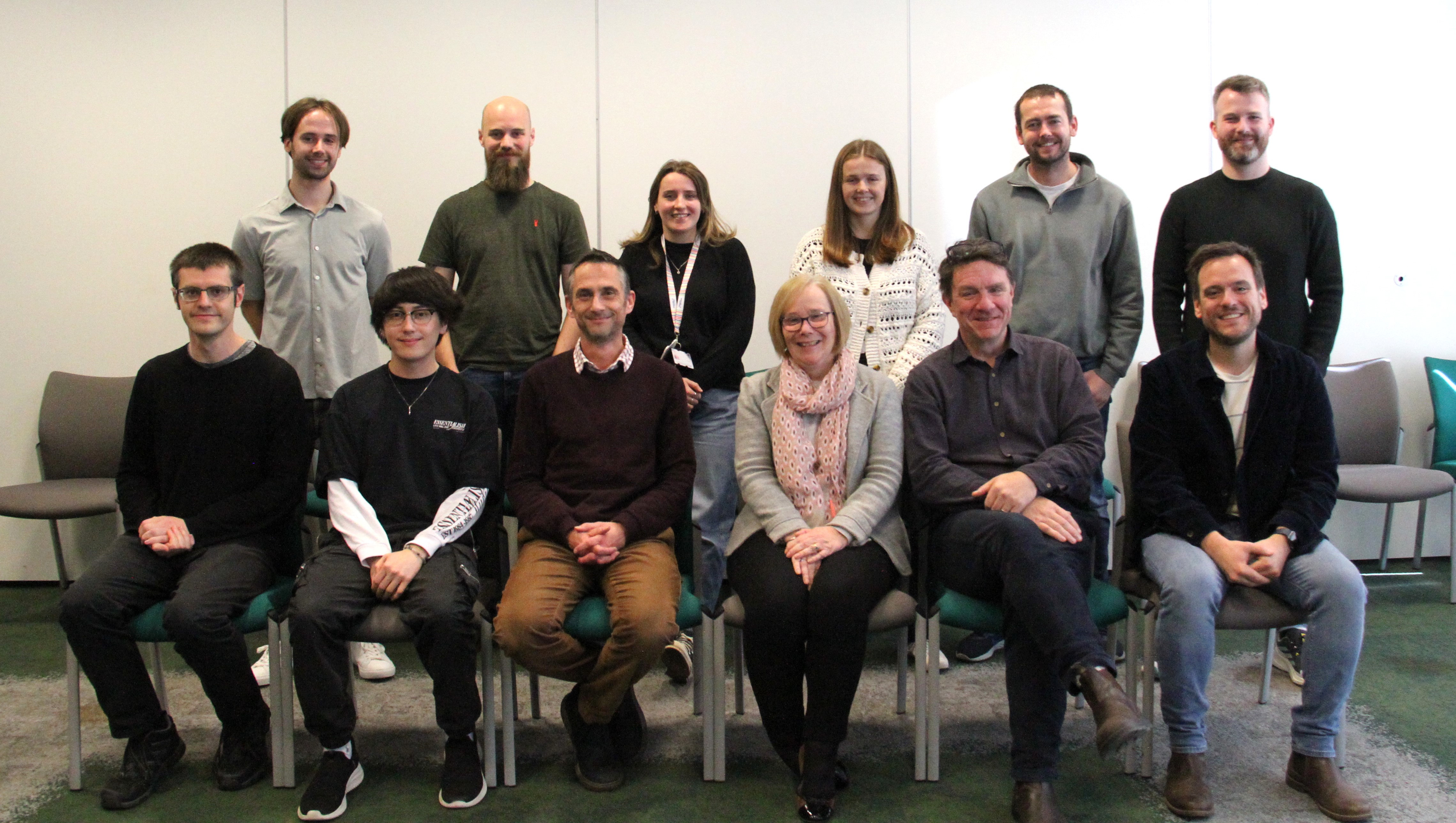Our research teams are pictured below. For a full list of Group Members and their biographies go to Members .
Amyloid research
The 2025 Amyloid Team

How and why proteins aggregate into amyloid are important fundamental questions that have far-reaching biomedical importance. Focusing on the proteins (β2-microglobulin (dialysis related amyloidosis)); amylin (type II diabetes); α-synuclein (Parkinson’s) and Aβ (Alzheimer’s), work in the group aims to map the structural mechanism of amyloid formation and to develop reagents to control aggregation in vitro and in vivo.
Outer Membrane Protein research
The 2025 OMP Team

How OMPs fold and assemble into the asymmetric outer-membrane (OM) of Gram-negative bacteria is a second research theme in our lab. In a collaborative multidisciplinary team (with David Brockwell, Neil Ranson, Roman Tuma and Ian Collinson (Bristol)) we are investigating how OMPs cross the inner-membrane via SecYEG (Fessl (2018) eLife)); traverse the periplasm aided by chaperones (Skp/SurA) (Schiffrin (2016) Nature SMB, Calabrese (2020) Nature Comms)), fold into membranes in vitro (Husymans, (2010) PNAS) and in vivo catalysed by the essential β-barrel membrane machinery (BAM) (Iadanza (2016) Nature Comms, Schiffrin (2017) JMB). Building on these insights we are currently exploring the dynamic motions of BAM during catalysis and how this can be harnessed to generate new antibacterial agents against Gram-negative pathogens.
Biologics research
The 2024 Biologics Team

We are also exploiting our knowledge of protein folding/aggregation to practical benefit by screening amyloidogenic proteins, as well as proteins of interest to biopharma, for hotspots that cause aggregation. By coupling aggregation to bacterial growth using a tripartite β-lactamase fusion construct we have discovered small molecules that prevent aggregation of amyloidogenic proteins (Saunders (2016) Nature Chem. Biol.). With David Brockwell and our collaborators in AstraZeneca, we recently combined the assay with directed evolution to enhance the resilience of biopharmaceutically-relevant antibodies to aggregation (Ebo (2020) Nature Comms.). Finally, in collaboration with David Brockwell and Nik Kapur (Mechanical Engineering, Leeds), we are examining how flow fields enhance, or cause, aggregation by flow-induced protein deformations (Dobson (2017) PNAS, Willis (2020) Eng. Rep.).